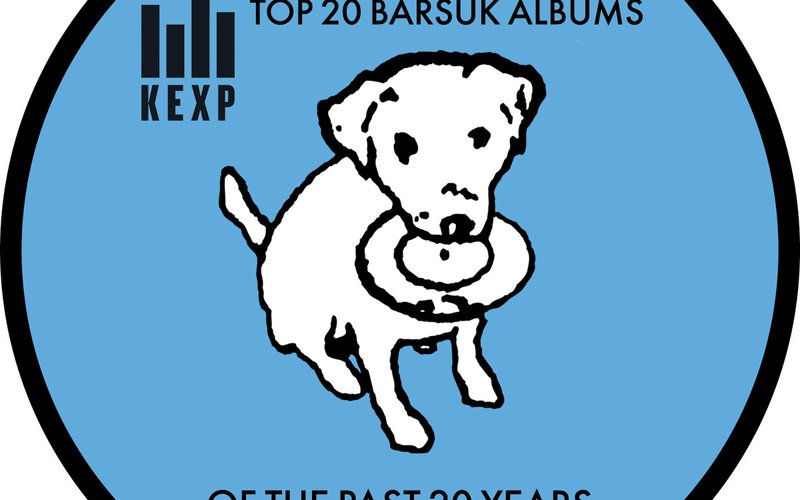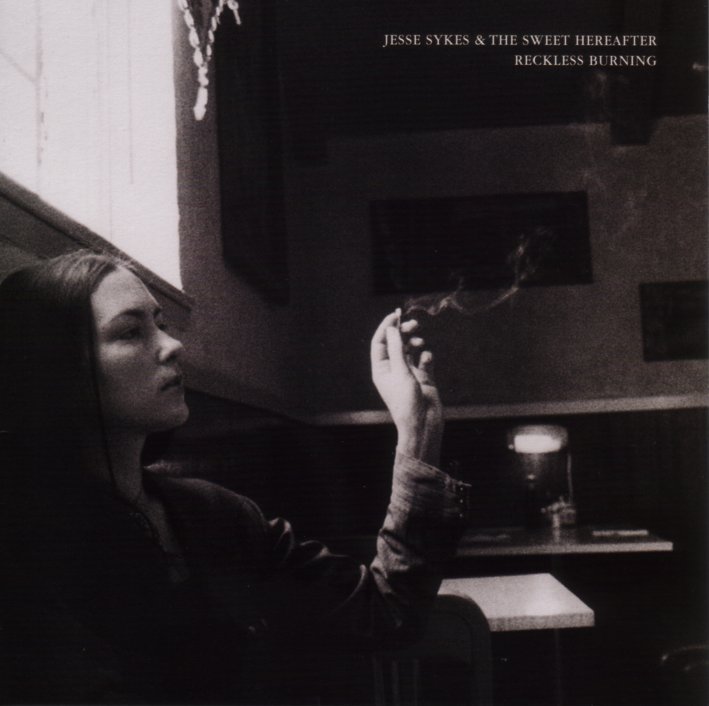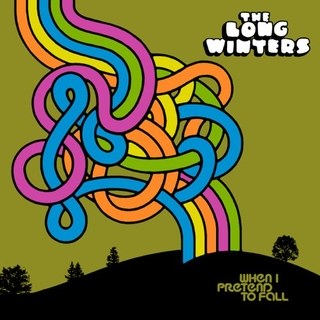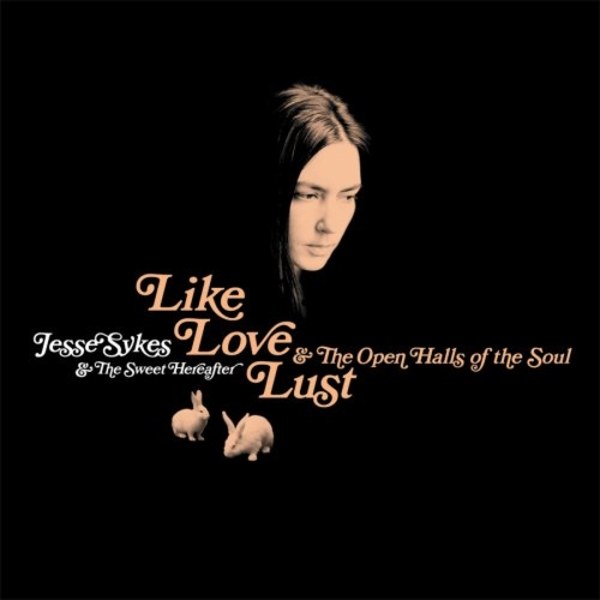
Sub Pop isn’t the only Seattle-based label enjoying a landmark anniversary this month. 20 years ago this Saturday, Barsuk Records was birthed into our collective music conscious and became a hallmark institution for indie rock in the Northwest and beyond. Over the last two decades, Barsuk has shared astounding releases from artists like Nada Surf, Phantogram, The Long Winters, David Bazan, and – oh yeah – Death Cab For Cutie. (In fact, the release of Death Cab’s debut Something About Airplanes is the official birthdate of Barsuk!)
The label’s official anniversary is this Saturday, August 18th, and KEXP is counting down 20 of our favorite releases from this remarkable label, as voted on by KEXP's Digital Content team with support from DJ Sharlese, host of Audioasis. Tuesday through Friday, we’ll be breaking down five different albums. Then, tune in on Saturday to hear Barsuk co-founder Josh Rosenfeld on Audioasis with DJ Sharlese, talking about the label’s history and playing songs from the Barsuk catalog.

Reckless Burning is an inferno of an album; the culmination of a spark between Seattle singer/songwriter Jesse Sykes and guitarist Phil Wandscher, who had recently been fired from alt-country faves Whiskeytown. Originally from New York, Sykes moved to the Northwest in 1990; the two met in in 1998 at Ballard's Hattie's Hat.
"Phil is a great editor. He's always aware of what I'm doing, and when something clicks with him, he'll say, 'That's a great idea.' So that's kind of how it started,” Skyes told the Seattle Post-Intelligencer in 2005. "We never planned anything and we never had any expectations. We just made that first record, and it's been taking a nice spin ever since.” She adds, “[the] first record was real small, had no money behind it, just some really good people with good intentions."
Among those “good people” was acclaimed producer Tucker Martine, who recorded and produced this, as well as the next two Barsuk releases, 2004’s Oh, My Girl and 2007’s Like, Love, Lust and the Open Halls of the Soul (scroll down). Another good person was Chris Walla of Death Cab for Cutie, who bought the album when it was originally released on the tiny local label Burn Burn Burn Records and brought it to the attention of Barsuk’s label head Josh Rosenfeld, who re-released it in 2003.
The debut scorches with the flame of each one’s talents: Sykes’ cigarette-stained voice glides across the Harvest Moon-style darkly-beautiful music. Both ethereal and earthy, it’s a haunting beauty, whose flame continues to flicker today. — Janice Headley

Peter Michel’s self-titled debut album under the moniker Hibou made a massive splash on the Seattle scene in 2015. A summery album of sunshine-filled dream pop, Hibou was made in Michel’s bedroom closet at his parent’s house on an iMac. At the time, Michel was known better for previously being the touring drummer in Craft Spells when he was still in high school. The influence of his time in Craft Spells is clear on Hibou, both sharing a similar surf pop vibe. At only 21-years-old, the debut proved Michel as a strong song-craftsman with an exciting future. Earlier this year, Michel released his sophomore Hibou album, Something Familiar, which saw Michel stretch his signature dream pop to darker depths, dealing with his anxiety head-on. - Jasmine Albertson

It was a harrowing road the led David Bazan to Strange Negotiation. After grappling with his Christian faith throughout the entire Pedro The Lion, he’d finally “broken-up with God” on Curse Your Branches. Branches was a climactic end to a long-gestating inner struggle that had plagued Bazan for years, but what would he do now that – as the album insinuates – he’d moved on? Strange Negotiations finds Bazan leaving the existential and taking stock of the world around him (although the Big Guy in the Clouds does get a couple references here and there). Without the moral compass of religion holding him, he now has to grapple with humanity at face value. Bazan’s cynicism manifests itself in ways than it had previously, splintering off between apathy and empathy. Opening the album with maybe the best riff of his career, “Wolves At The Door” sets a foreboding tone of festering anger that eerily predicts the alt-right movement. Bazan sneers over the pounding drums, “You’re a goddamn fool and I love you.”
One of Bazan’s greatest strengths has been his inquisitive nature and listening to the world around him, even if that world is burning. Politics and capitalism are second only to religion in Bazan’s early works as targets for Bazan. With the latter somewhat removed from the picture, Bazan takes stock and finds a world without love for one another. He pleads on “People,” reflecting on a time when he was young and seeing people willfully taking care of another, now no one seems like they care at all. But still, he pushes forward with a rallying cry to fight for honesty: “You’ve gotta find the truth, and when you find that truth don’t budge. Until the truth you found begins to change, And it does. I know.”
Interspersed through these thoughts are short portraits. The stirring rumination of “Virginia,” reflecting on the loss of a friend who’d already moved on from the same existential crises Bazan spent so long toiling over. The self-defeating internal monologue of “Don’t Change.” It all culminates and ends with Bazan’s first ever love song, “Won’t Let Go.” It paints the scene of Bazan at an airport, thinking about the people he loves who are physically out of reach. He bellows over a plodding bass line that it would take death itself to keep him from his lover. And for all the harrowing messages in Strange Negotiations, that’s really the kicker. That love is worth fighting for, even when the world seems stacked against it. - Dusty Henry

John Roderick is among the best songwriters never to attain either chart-buster or eternal cult-favorite status. The tunes he's written – on the Long Winters' sophomore effort especially – are sentimental and romantic without being cloying, wry without being bitter or cynical, rich with language without coming across as pretentious. His melodies are boisterous without being obnoxious. His stories about the glow and afterglow of relationships are abundant with detail and wit. Holding on for dear life to a stretcher, smelling cinnamon on someone's skin. The space where a body was once burrowed in the blankets; nests being built in long tangles of hair; the goofy slapstick, intentionally provoking a laugh, from where the album's title is derived.
"But she never says I love you/Until I say I love you/Like we're exchanging hostages." "She showed up for our date five years late." "Twice you burned your life's work/Once to start a new life/And once just to start a fire."
Featuring over two dozen contributors, every corner of the acerbic pop-rock on li is augmented by bountiful musical flourishes and clever turns. The side-winding chorus of "Shapes," the swell of "Blanket Hog," the way "Prom Night at Hater High" sounds simultaneously like a sock hop and a hoedown. "It'll Be a Breeze," the full-length's most enduring song, is simply an acoustic guitar, Roderick's clear singing voice, and the heartbreaking perspective of a man feeling the presence of his lover from inside of a coma. The album, with all its obsession and acrimony, ended up being the definitive statement of its lead songwriter: A timeless document stewing along the spectrum of love far too easy to get lost in. - Martin Douglas

If an oak tree in the middle of a forest had a voice, it's easy to imagine it would sing like Jesse Sykes. Majestic, full, grown upwards from the soil, its soul probably a hundred years old. On her band's third album, her voice occasionally but rarely rises above the kind you would use in a quiet, moonlit conversation, singing about the plentiful waters of devotion and when that well runs dry and raindrops cutting through the night sky. The set of songs are heavy on the crystalline folk and alternative country the band is known for, but also stretches its wings over a more pop-oriented sound with tunes like "I Like the Sound" and "You Might Walk Away."
Sykes is such a magnanimous presence it's sometimes easy to overlook the musicianship found in the songs, but Like Love Lust also serves as a showcase for the guitar playing of Sweet Hereafter guitarist (and former Whiskeytown sideman) Phil Wandscher. He exhibits his dexterity and adventurousness over stately ballads like "The Air is Thin," awards "How Will We Know?" its dreamlike feel before almost tearing it to shreds, and is the hand that guides "Station Grey" through its peaks and valleys. When he makes his six-string whine on "LLL" as Sykes sings, "Sometimes you've got to kill the one you trust" (and then makes it roar very shortly after), it provides the most arresting moment on an album filled to the brim with them. - Martin Douglas
KEXP continues the Top 20 Barsuk Albums countdown tomorrow with albums 10 through 6. Check out 20 through 16 here.
Sub Pop isn’t the only Seattle-based label enjoying a landmark anniversary this month: Barsuk Records turns 20 this weekend, and KEXP is counting down their Top 20 albums